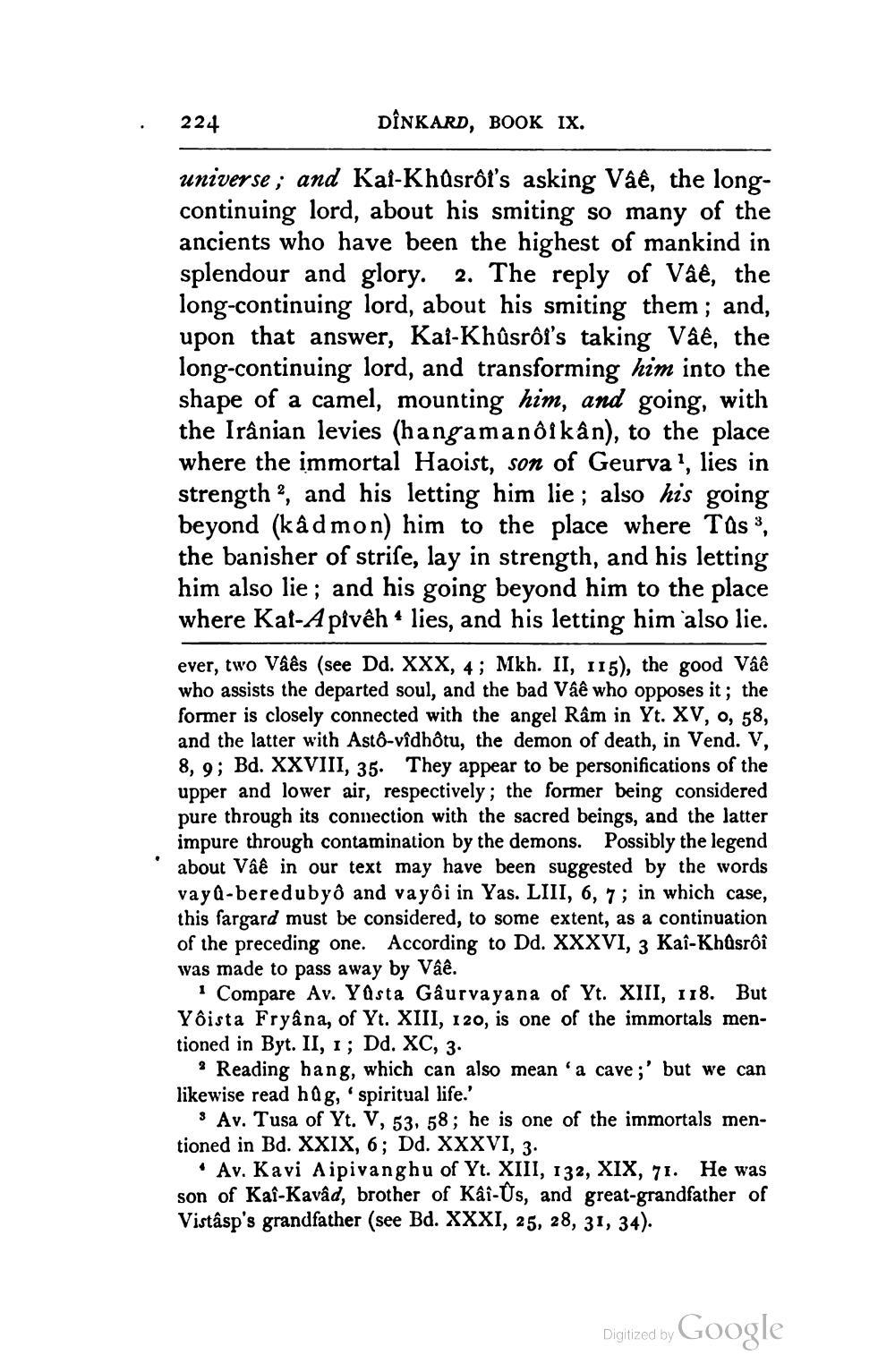________________
DÎNKARD, BOOK IX.
universe; and Kai-Khûsrôt's asking Vâê, the longcontinuing lord, about his smiting so many of the ancients who have been the highest of mankind in splendour and glory. 2. The reply of Vâê, the long-continuing lord, about his smiting them; and, upon that answer, Kai-Khûsrôt's taking Vâê, the long-continuing lord, and transforming him into the shape of a camel, mounting him, and going, with the Irânian levies (hangamanôikân), to the place where the immortal Haoist, son of Geurva1, lies in strength, and his letting him lie; also his going beyond (kâdmon) him to the place where Tûs 3, the banisher of strife, lay in strength, and his letting him also lie; and his going beyond him to the place where Kat-Apivêh lies, and his letting him also lie.
4
224
ever, two Vâês (see Dd. XXX, 4; Mkh. II, 115), the good Vâê who assists the departed soul, and the bad Vâê who opposes it; the former is closely connected with the angel Râm in Yt. XV, o, 58, and the latter with Astô-vîdhôtu, the demon of death, in Vend. V, 8, 9; Bd. XXVIII, 35. They appear to be personifications of the upper and lower air, respectively; the former being considered pure through its connection with the sacred beings, and the latter impure through contamination by the demons. Possibly the legend about Vâê in our text may have been suggested by the words vayu-beredubyô and vayôi in Yas. LIII, 6, 7; in which case, this fargard must be considered, to some extent, as a continuation of the preceding one. According to Dd. XXXVI, 3 Kaî-Khûsrôî was made to pass away by Vâê.
1 Compare Av. Yasta Gâurvayana of Yt. XIII, 118. But Yôista Fryâna, of Yt. XIII, 120, is one of the immortals mentioned in Byt. II, 1; Dd. XC, 3.
2 Reading hang, which can also mean 'a cave;' but we can likewise read hûg, 'spiritual life.'
3 Av. Tusa of Yt. V, 53, 58; he is one of the immortals mentioned in Bd. XXIX, 6; Dd. XXXVI, 3.
Av. Kavi Aipivanghu of Yt. XIII, 132, XIX, 71. He was son of Kaî-Kavâd, brother of Kâî-Ûs, and great-grandfather of Vistâsp's grandfather (see Bd. XXXI, 25, 28, 31, 34).
Digitized by
Google




